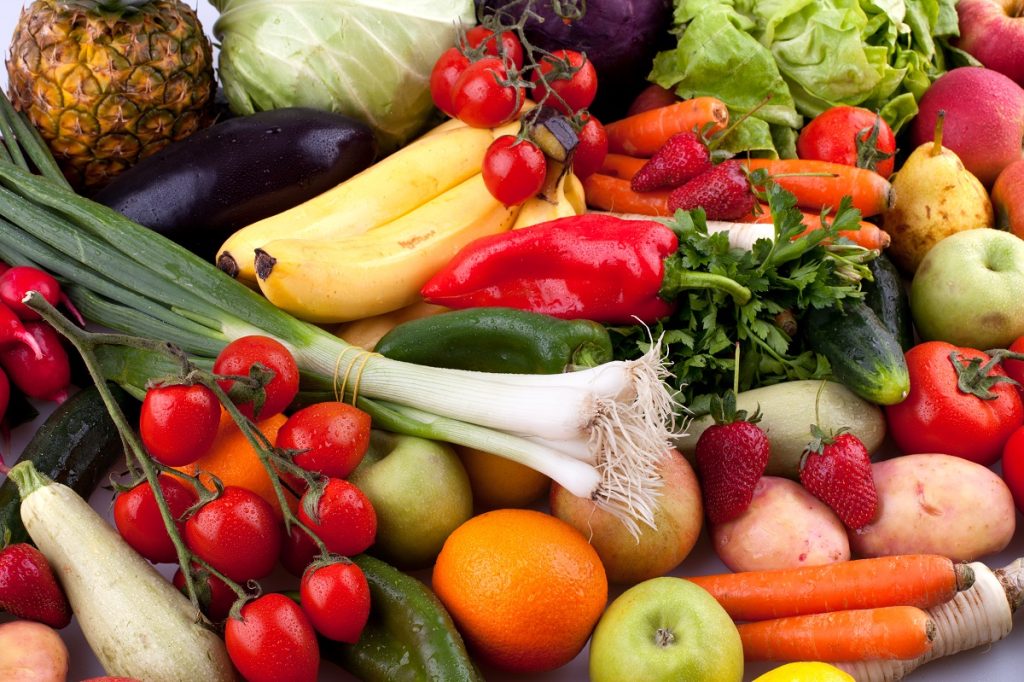- Focus on a balanced diet, including whole grains, fruits, vegetables, protein-rich foods, and fiber.
- You need to get enough fiber (25 grams/day for women and 38 grams/day for men).
- You need to drink at least eight glasses of water or other fluids per day.
- Consume Vitamin D through sunlight exposure or supplements. You can also get it in foods like milk and cereal.
- Visit the dentist regularly to keep your teeth healthy and boost nutrient absorption from food.
As you age, your nutritional needs change. Your body doesn’t process food as efficiently as it used to, and some health conditions can make it harder for you to get the nutrients you need. That’s why it’s crucial to pay attention to what you eat, especially if you’re in your 50s. In this blog, you will learn about things you need to know about nutrition in your 50s, so you can take control of your health and age gracefully.
Focus on a Balanced Diet
Eating a balanced, healthy diet is necessary for maintaining good health in your 50s. That means including a variety of foods from these important food groups:
Fruits
Fruits are packed with vitamins, minerals, and fiber. They are also low in calories and high in nutrition. Try to include at least two servings of fruit per day.
Vegetables
Vegetables are an essential source of vitamins, minerals, and fiber. Aim for three or more servings a day that include dark green vegetables like spinach, kale, and broccoli—these are especially important for bone health.
Whole grains
Whole grains provide essential vitamins, minerals, and fiber that are important for heart health. Choose whole grain breads, pastas, and cereals over processed white versions whenever possible.
Protein-rich foods
Meats like poultry, fish, lean red meats, and eggs all have protein which helps with muscle maintenance. Protein-rich foods are also a great source of iron, which is essential for energy levels and preventing anemia.
It’s also important to cut down on processed foods, sugary drinks, and saturated and trans fats, which can increase your risk of developing chronic diseases like heart disease, diabetes, and certain types of cancer.
Get Enough Fiber
As you age, your digestion slows down, and you may experience constipation and other digestive issues. Getting enough fiber in your diet can help prevent these problems and promote good gut health. Women should aim to consume at least 25 grams of fiber per day, while men should aim for 38 grams. Good sources of fiber include whole grains, fruits, vegetables, nuts, and seeds.
Stay Hydrated

Dehydration can be a serious problem for older adults, as your body loses some of its ability to conserve water as you age. Drinking enough fluids can help prevent dehydration and keep your body functioning properly. Aim for at least eight glasses of water or other liquids per day.
Pay Attention to Vitamin D
Vitamin D is crucial for bone health, as it helps your body absorb calcium. But many older adults don’t get enough vitamin D, as it becomes harder to absorb through the skin as you age. You can get vitamin D from sunlight, fortified foods like milk and cereal, and supplements. Talk to your doctor about whether you should take a vitamin D supplement, especially if you get limited sun exposure or have a history of osteoporosis or other bone diseases.
Fill Nutrient Gaps with Supplements
While it’s best to get nutrients from whole foods, sometimes it can be challenging to get everything you need from your diet alone. In these cases, supplements can be helpful. Talk to your doctor or a registered dietitian about whether you may benefit from taking multivitamins or other supplements to fill potential nutrient gaps.
Mind Your Dental Health

Did you know that your dental health can affect your overall health? Poor dental hygiene can lead to problems like gum disease and tooth decay, which can make it difficult to eat certain foods, leading to nutrient deficiencies. So make sure you brush twice a day with fluoride toothpaste and floss regularly.
But most importantly, visit the dentist regularly. A good dentist can help you address any dental issue you might already have. For example, if you have tooth loss, a dentist can give you tooth replacement solutions like dental implants that look and feel like natural teeth. Dental implants can improve your ability to chew and digest food, allowing you to get more of the nutrients you need.
Nutrition is an essential part of staying healthy in your 50s, and it’s important to focus on a balanced diet that includes fruits, vegetables, whole grains, protein-rich foods, and fiber. Additionally, you should stay hydrated by drinking at least eight glasses of water or other fluids per day and make sure you get enough vitamin D through sunlight exposure or supplements.
Finally, don’t forget about dental health – regular visits to the dentist are essential for keeping your teeth strong and getting all the nutrients you need from food. By following these tips, you can take control of your nutrition as you enter this new stage of life!






